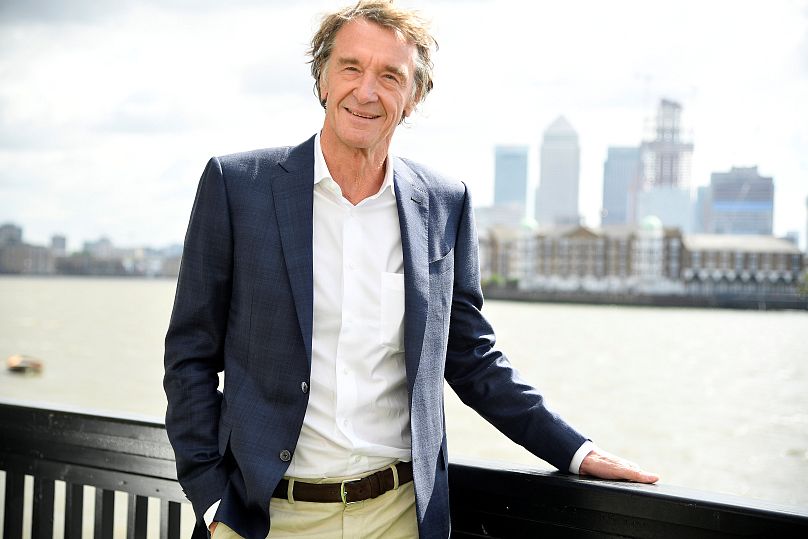Majority of Britain's 1,000 wealthiest people are self-made with old money losing ground, the annual Rich List shows.
Out with the old, in with the new: The annual Sunday Times' Rich List, released on Sunday, shows Britain's wealthiest are getting more diverse with self-made entrepreneurs increasingly surpassing old money.
 ADVERTISEMENT
ADVERTISEMENT
 ADVERTISEMENT
ADVERTISEMENT
Who is the wealthiest person in Britain?
For the first time in the List's 30-year history, the top spot has been claimed by a self-made, British born industrialist, Jim Ratcliffe.
The founder and owner of chemicals giant Ineos is estimated to be worth £21.05 billion (€23.84 billion).
Raised in a council home — social housing — near the city of Manchester, Ratcliffe's first foray into the workplace ended very quickly when he was fired after just three days for having mild eczema.
He then worked for several big companies before launching his first business in 1992, at the age of 45.
"Jim Ratcliffe epitomises the astonishing change of fortunes and the rise of meritocracy over the past three decades," the List's compiler, Robert Watts, wrote.
How the list has evolved?
At its inception in 1989, the Rich List contained only 200 entries, and a £30 million fortune would be enough to get you in. Nowadays, the list contains 145 billionaires — 11 more than last year — and a minimum a £115 million is required to make it into the list's 1,000 entries.
Together, these 1,000 richest individuals and families have a combined wealth of £724 billion (€819 billion), a 10% rise on last year's tally.
Another significant development is that, just like Jim Ratcliffe, the majority of entrants are self-made and not relying on family money — only 43% of the richest people in Britain had done so in 1989.
"Now, in what is perhaps the biggest transformation in the Rich list, 94% of today’s Rich Listers have made their own money," Watts wrote.
Landowners, many of whom were aristocrats, made up over 28% of the list in 1989. That figure has dropped to just 2.9%. Property developers have now surpassed them as the largest single category, making up 16.4% of the list.
"The Rich list increasingly tells the story of how new money surpasses old money," he added.
Limited diversity?
Although the list recorded its highest ever number of women, only 141 have made it in. Together, they make up 14% of the 1,000 entries.
The richest woman on the list is Dutch-born Charlene de Carvalho-Heineken, who has been running the brewery giant since the death of her father in 2002. Her wealth has increased by 20% over the last year, due to the popularity of a new 0% alcohol beer.
Together with her husband, financier Michel de Carvalho, she is at the head of a £11.1 billion (€12.5 billion) fortune and has been ranked 6th on the list.
Furthermore, although their share more than tripled in the past three decades, ethnic minority Rich Listers only make up 8.6% of the list.
Highest of the list are brothers Sri and Gopi Hinduja, who rule over an conglomerate with investments in oil and gas, IT, energy, media, banking, property and healthcare. With a combined wealth £20.64 billion (€23.4 billion), they tailed Jim Ratcliffe to claim the second spot.











